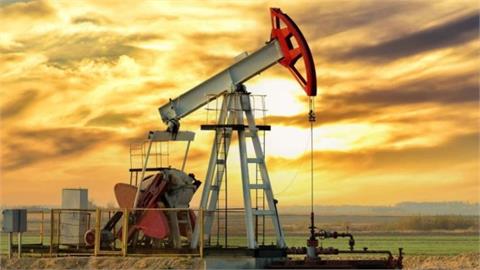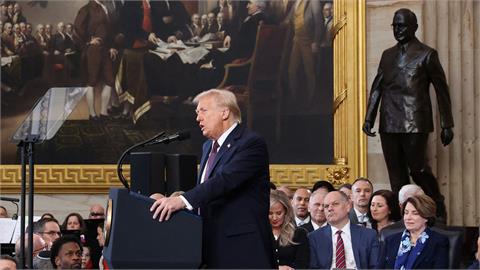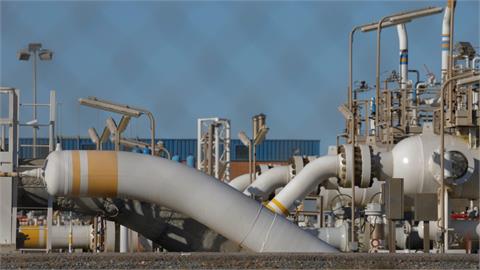Greek Prime MinisterAlexis Tsipras, his Israeli counterpart,Benjamin Netanyahu, and Cypriot PresidentNicos Anastasiadesmet in Nicosia on May 8 where they jointlyapplauded the geo-strategic cooperation between the three Mediterranean countries, including energy.
Thethree agreed to push ahead with plans to construct the East Med pipeline, or EastMed, which plans to transport gas from newly discovered fields in the East Mediterranean to Europe. Tsipras called the East Med pipeline "a project of utmost geo-strategic cooperation” while Netanyahu called the project a "very serious endeavour” that will boost Europe’s energy security.
An agreement for the East Med pipeline, which would begin off Cyprus’ southern coast and stretch to Italy, via Crete, and the Greek mainland, isexpected to be launched in 2018.
Cyprus Natural Hydrocarbons Company CEOCharles Ellinastold New Europe on May 8 the trilateral meeting in Nicosia is helping to boost support for the project along with the European Commission, which granted €35 million in supportfor engineering studies.
"With the (high) price of gas that is expected in Israel, as well as the (overall) cost of the pipeline, by the time the gas arrives in Europe it is likely to be too costly to compete with Russian gas, even with US LNG (liquefied natural gas),” Ellinas said, adding that even though the studies for the pipeline are progressing and inter-governmental agreements are to be signed soon, there is a long way to go before it overcomes commercial challenges and it becomes reality.
"Hefty subsidies from Europe could help, but with Europe’s increasing shift towards renewables this is unlikely. The proof of the pudding would be in securing firm gas sales agreements in Europe – none of which are forthcoming, so far,” Ellinas said.
Meanwhile, Cyprus and Israel are engulfed in a dispute over Aphrodite, Cyprus’ main natural gas field discovered in 2011. According to Ellinas, Block 12, in which Aphrodite lies, is bordered on the Israeli side of the Exclusive Economic Zone (EEZ) line by a block called Ishai, which are owned by small Israeli companies.
"Their position, which the Israeli Ministry of Energy supports and is responsible for, is that the Aphrodite reservoir extends into Israel and that the quantities of natural gas lying in Isai are about 7-10 billion cubic meters (bcm), compared to about 100 bcm in Block 12. The owners of Block 12, Noble Energy, Delek, and Shell, disagree,” Ellinas said, referring to the US, Israeli, and UK-Dutch energy companies. "Their position is that Aphrodite does not extend into Ishai, and that even if did, the corresponding amounts of natural gas are negligible,” he explained.
Asked if the dispute would slow natural gas supplies from the East Mediterranean region, Ellinas reiterated that disputes often occur often in the global oil and gas industry.
"To avoid this, neighbouring countries usually conclude agreements, known as ‘unitisation agreements’, immediately afteran agreement that defines the dividing line between the two EEZs. These are framework agreements defining how the gas and proceeds should be apportioned, how disputes should be resolved, etc. This was done, for example, between Cyprus and Egypt in 2013,” Ellinas said. "Unfortunately, this was not done between Cyprus and Israel, although the EEZ delineation agreement was signed in 2010, which has led to the present situation. Instead of just having the two sets of companies in the dispute, the problem also involves both governments. Nevertheless, it is not adeal breaker or a showstopper,” he told New Europe.
According to Ellinas, the Israeli and Cypriot governments appear to be willing to enter into a process that should lead to a successful resolution. "The first step is that the companies involved should make a final attempt to reach an agreement between them during the next few months. If this does not have a positive result, the problem should then be referred to international arbitration. But it is important that all those involved should also accept and understand that the results of the arbitration will be binding,” he said.
Ellinas also said that the possibility of Aphrodite natural gas being sold in Egypt brought the problem into the limelight. He reminded that Noble Energy and Shell, as well as Cyprus and Egypt, are in talks to sell gas for liquefaction at the Idku LNG terminal and it has been reported that such talksin the advanced stages. "However, even though an inter-governmental agreement is close to being signed, a commercial gas sales agreement is another matter. Low gas prices globally make such an agreement challenging,” he said.
"Should any such agreement be reached, the (Israeli) Ishai owners cannot block them, but without a resolution, through arbitration, they may take their case to court. This may complicate the development of Aphrodite, but it will not slow down efforts for gas exports from the region.
Irrespective of the current particular problems, Cyprus and Israel are very close to an agreement at the political level, which will continue to be the case,” Ellinas said.
* by Kostis Geropoulos, Energy & Russian Affairs Editor, New Europe
https://www.neweurope.eu/article/cyprus-greece-israel-push-geo-strategic-gas-exports-europe/



